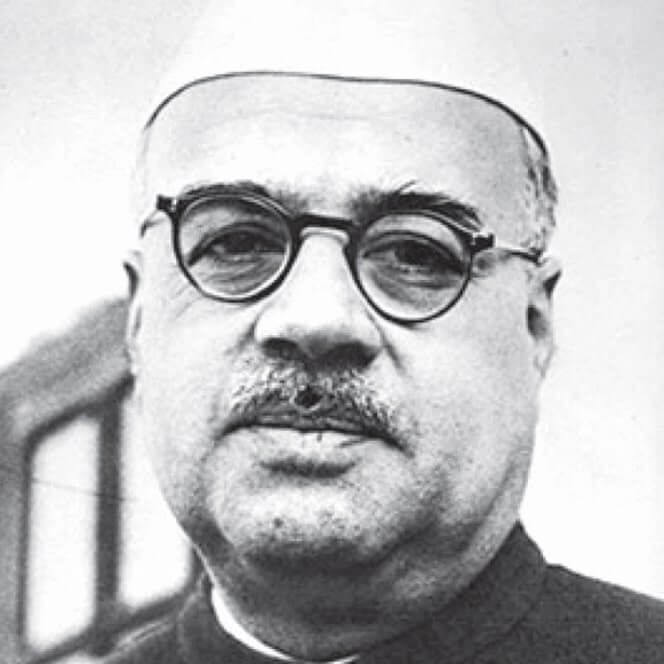Early Life
Jairamdas Daulatram was born on 21st July 1891 to a Sindhi family.
He joined the Indian National Congress as a young man, and later was elected to the Bombay Legislative Council. From 1935-38, he was appointed as a member of various Committees and Sub-Committees on labour rights and issues.
Role in India’s Independence Movement
Daulatram developed a good relationship with Mahatma Gandhi, and resigned from the Bombay Legislative Council in 1930 to join Gandhi’s Salt Satyagraha. At Gandhi’s request, he became a member of the Foreign Cloth Boycott Committee and travelled to several different provinces to convince local administrations to support the boycott.
Contribution to Constitution Making
At the time of independence, Daulatram was appointed the Governor of Bihar. He resigned from this position in 1948 due to conflict with the Chief Minister, after which he ran for re-election to the Constituent Assembly.
Daulatram won the election from East Punjab on a Congress party ticket. He did not actively participate in the debates, although he was a member of three important Committees and two Sub-Committees.
Later Contributions
From 1948 until 1950, he held the position of Union Minister for Food and Agriculture (1948–50). Later, he was appointed as the Governor of Assam (1949–56). In 1951, he commissioned the Assam Rifles regiment, led by Major Ralengnao Khathing, to capture Tawang, then part of the Tibetan autonomous region under Chinese control. This brought him into conflict with Nehru, who had not authorized the action.
As a major proponent of the Sindhi language and literature, Daulatram was one of the founding members of the Akhil Bharat Sindhi Boli Ain Sahit Sabha (All India Sindhi Language and Literature Congress). In 1957, he chaired a Convention to demand the recognition of Sindhi under the Eighth Schedule of the Indian Constitution.
He passed away on 1st March 1979.
Key Writings:
Daulatram’s private papers are stored by the National Archives of India.

